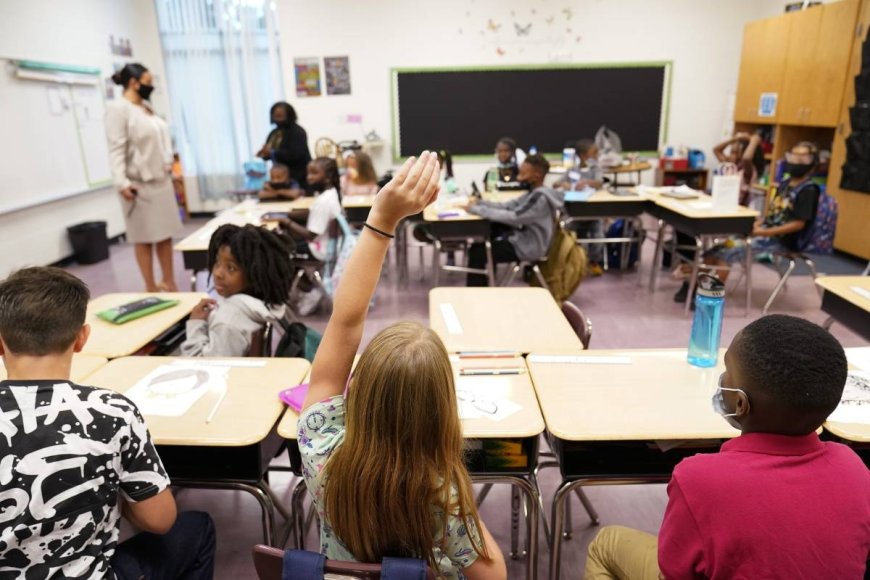On national exams, US youngsters continue to lag behind in reading and show little progress in arithmetic
US students show stagnant math scores and declining reading scores post-pandemic, according to the 2024 National Assessment of Educational Progress. The results highlight widening achievement gaps and systemic issues impacting education.

U.S. Students Struggle to Recover from Pandemic Learning Loss, Report Finds
The latest results from the National Assessment of Educational Progress (NAEP), often referred to as the "nation’s report card," reveal that American students have yet to recover academically from the disruptions caused by the COVID-19 pandemic. While some improvements have been made in math, reading scores have continued to decline, further exacerbating the education crisis across the country.
Math Shows Small Gains, but Reading Continues to Decline
Administered every two years to a sample of students across all states, the NAEP exam provides one of the most reliable indicators of the progress—or decline—of the U.S. education system. The most recent exam, conducted in early 2024, assessed fourth and eighth graders in reading and math.
One of the few bright spots was in fourth-grade math, where the average score increased by two points on a 500-point scale. Some states, such as Washington, D.C., saw a 10-point improvement, showcasing localized progress. However, despite this slight upward trend, scores remain three points below pre-pandemic levels from 2019.
Unfortunately, reading scores continued their downward trajectory, indicating that many students are still struggling with literacy skills. The ongoing decline in reading is particularly alarming, as literacy is foundational for overall academic success.
Widening Achievement Gaps
The data also highlights a growing disparity between student groups. Higher-achieving students are beginning to recover from pandemic-related learning losses, but lower-performing students are falling further behind. This widening gap suggests that educational inequities—already a concern before the pandemic—have worsened in recent years.
Education experts say that students from disadvantaged backgrounds, who were already struggling before COVID-19, have faced the biggest setbacks. These students often had less access to online learning, stable home environments, and additional educational support during school closures.
Underlying Issues: Chronic Absenteeism and Mental Health Struggles
The failure to make significant progress in student learning reflects broader issues affecting American schools. Among them are:
- Chronic Absenteeism: Many schools are seeing record-high rates of absenteeism, as students struggle to return to regular classroom attendance.
- Mental Health Crisis: The pandemic exacerbated mental health issues among teenagers, making it harder for students to focus and succeed in school.
- Pandemic School Closures: The long-term impact of remote learning continues to affect student performance, especially for younger learners who missed critical developmental years in the classroom.
Peggy Carr, commissioner of the National Center for Education Statistics (NCES), which oversees the NAEP exam, acknowledged the gravity of the situation. "The news is not good," she stated. "We are not making the necessary progress to help our students make up the ground they lost during the pandemic."
Can Schools Reverse the Trend?
Despite ongoing challenges, some states and school districts are implementing aggressive strategies to boost student learning:
- Expanding tutoring programs to provide individualized academic support.
- Investing in early literacy initiatives to tackle reading deficiencies at younger ages.
- Enhancing mental health resources to address student well-being alongside academics.
- Adopting year-round schooling or extended school days to recover lost learning time.
While these efforts show promise, the slow recovery of academic performance underscores the need for sustained investment in education reform. Without significant changes, many students may continue to struggle, widening long-term gaps in academic achievement and workforce readiness.
The Road Ahead
The NAEP results serve as a wake-up call for educators, policymakers, and parents alike. While some progress has been made in math, the persistent decline in reading scores signals that American students are still facing a crisis in literacy and overall academic development.
As schools and government officials work to address these challenges, the question remains: Will current efforts be enough to help students fully recover from pandemic learning losses?
What's Your Reaction?












/https://tf-cmsv2-smithsonianmag-media.s3.amazonaws.com/filer_public/54/66/546650fa-26a4-40fd-8d6d-5a7a04540f81/rosetta2.png)
:max_bytes(150000):strip_icc():focal(999x0:1001x2)/robert-prevost-050825-1-39395418ab494da5a3a700c9478e66c8.jpg)















































format(webp))
format(webp))

























